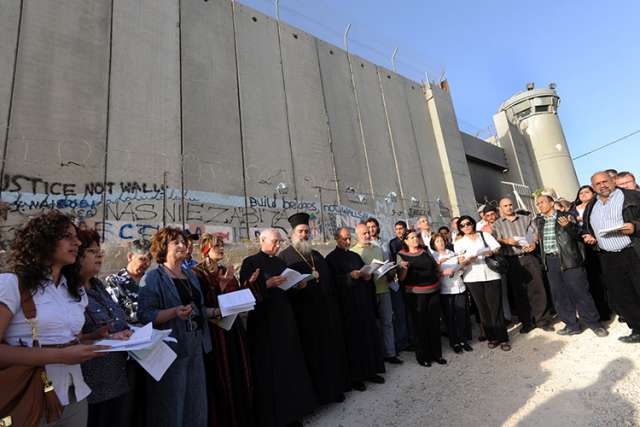Nakba is an Arabic word for catastrophe. On Nakba Day, Palestinians remember the 1948 war which divided Israel along ethnic lines. In that war, thousands of Palestinians fled or were expelled from their homes and villages. It is the source of hundreds of thousands of Palestinian refugees still living in camps in Lebanon, Syria and the West Bank.
It also set off a chain reaction of Jewish expulsions across the Middle East. From Iraq to Egypt to Morroco, Jews who had lived in peace in those countries for generations were dispossessed and told to go to Israel.
Nakba Day is also Israel's Independence Day — the day when the nation of Israel remembers its founding 66 years ago.
Israel has achieved more in the last 66 years than any other nation. It began as a Third World nation, a repository for refugees from Europe and the Middle East whose starting point was tents and emergency dormitories, sleeping on steel beds provided by The Jewish Agency. Israel's only meaningful export 60 years ago was Jaffa oranges. The country had inadequate schools, no universities and was being run by a back-to-the-land movement hatched by city-dwelling, European idealists who knew nothing about farming the dry rocky soil of Palestine.
Today Israel exports software, has world-class universities and hospitals and Israelis expect a lifestyle no worse than the middle classes of France, Italy, England and Germany.
Listening to Palestinians speak about the occupation, their suffering and their aspirations is not like reading another newspaper op-ed analysis of the world's most enduring and intractable conflict. These aren't conversations about UN resolutions, U.S. President Barack Obama's political commitment to peace or the culpability of the Israeli settler movement. They are about raw anger that has no place to go.
"We want to live freely!" Alladin Subeh tells me in a voice he struggles to control.
Subeh is a young Muslim shopkeeper in the tourist strip near Manger Square and an aspiring filmmaker. He's made a documentary about a pair of brothers, one in an Israeli jail and the other killed by Israeli soldiers.
"The two-state solution? Never. One state? Never," he said.
Subeh dismisses any talk about peace as an empty exercise for Americans and Europeans with too much time on their hands. Of course Palestinians and Israelis want peace but, in Subeh's view, there will always be war. He believes neither side can back down and neither side can win.
Social worker Iskandar Andon has some historical perspective. He took part in the first intifada, was shot in the leg and spent two years in Israeli administrative detention — held he says without charges and without a trial. Years later he studied at the University of Pittsburgh. In his intifada days he was a member of the Popular Front for the Liberation of Palestine, which began in the 1960s as a Marxist-Leninist option for Palestine. Founder George Habash saw Palestine as the new Cuba, part of the Soviet bloc, able to throw off the shackles of imperialism and colonialism.
Andon now counts himself more a social democrat than a Marxist revolutionary. He dismisses Fatah and the PLFP as paper tigers whose armed wings have never accomplished anything for the Palestinian people.
He does see a future, but it may take generations. He dismisses the two-state solution and Israel's attempts to maintain a Jewish majority as a gross distortion of democracy. He wants a one-state solution in which identity and citizenship are separate from religion. He wants a single country with a secular constitution and secular politics.
Andon still genuflects when he walks into the chapel at La Creche where he works. His understanding of his work with abandoned children and young women at risk (at risk of being killed by their own families) is quintessentially Catholic. But he won't go to Church on Sundays any more. He blames religion for the state of the Middle East.
Subeh is only too happy to say something positive about Pope Francis to a foreigner, a journalist and a customer. But he isn't betting on the Pope's visit to change the situation.
"Yeah the Pope understands. But it does not matter," he said. "He understands Iraq, Syria, Palestine, everything — but he can change nothing."
Subeh may be right. The Pope can't turn Nakba into freedom and joy for Palestinians. He can't free Israel of the burden of its military administration over a hostile population. Only Israelis can do that.
But what could hope do? If Palestinians and Israelis had within and among themselves a certainty that their future does not have to be built on their tragic past, if they believed in peace even though leaders and politicians and armies can't pull it out of the thin air of negotiations, how would that change the world?
As it happens, hope is the Pope's stock in trade.


